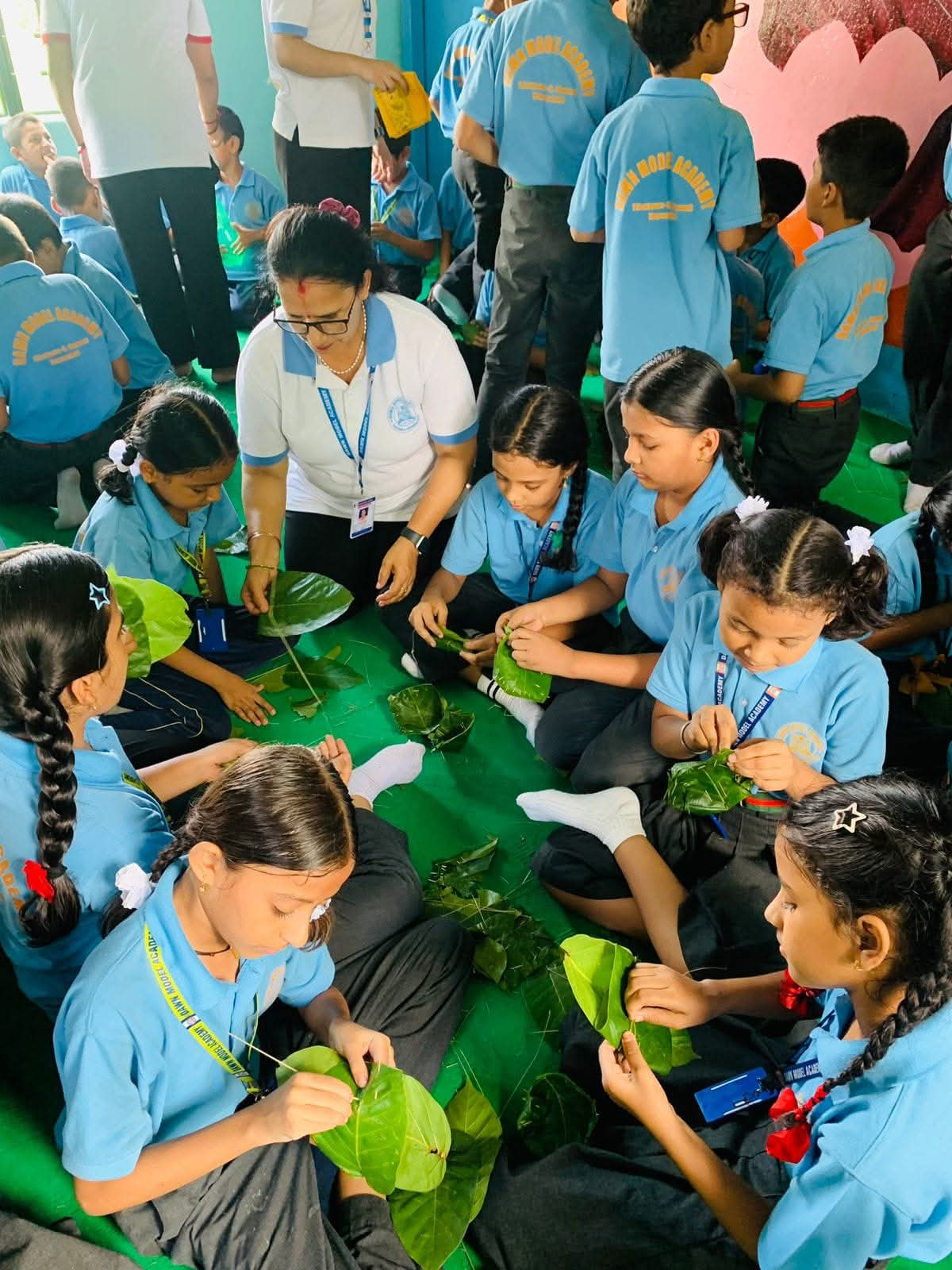Kathmandu, August 11, 2025
Once a ubiquitous presence at religious rituals, community feasts, and family celebrations across Nepal, the humble duna-tapari-eco-friendly plates and bowls crafted from sal leaves-now faces a quiet but significant threat.
The spread of modern lifestyles, coupled with the convenience and low cost of disposable plastic and paper alternatives, has steadily pushed this centuries-old tradition out of urban kitchens and event spaces. Cultural experts warn that this decline is not just a loss of a culinary accessory, but an erosion of Nepal’s green cultural identity.
For generations, duna-tapari have been an inseparable part of Nepali life-serving meals during weddings, bratabandha, and nwaran ceremonies, holding prasad and akshata in temples, and accompanying major festivals like Dashain and Tihar. Crafted by hand, the process involves artfully stitching sal leaves with slender bamboo sticks-a skill passed down through families and communities. Beyond their cultural value, they are entirely biodegradable, returning to the earth without polluting soil or water.
“In an era when plastic is poisoning our land and rivers, returning to our traditional duna-tapari is not just about nostalgia—it’s about environmental responsibility,” says one cultural historian. “Our ancestors were already practicing sustainable living long before the term existed.”
Yet, despite these advantages, the craft is struggling to survive. As demand shrinks in cities, younger generations are less likely to learn the technique, putting the skill at risk of disappearing altogether.
Still, there are signs of revival. A growing number of youth-led enterprises and social entrepreneurs are reintroducing duna-tapari to restaurants, homestays, and cultural events as a sustainable alternative to plastic. Their efforts align with a global push for eco-friendly packaging solutions and could help reposition this traditional product as both culturally significant and environmentally smart.
Preserving duna-tapari is more than cultural conservation-it is a step toward a cleaner, healthier Nepal. Experts say that government incentives, coupled with public awareness campaigns, could accelerate the return of this natural tableware to everyday life, helping Nepal balance tradition with the urgent need for environmental sustainability.